8 start with L start with L
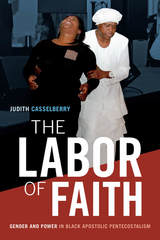
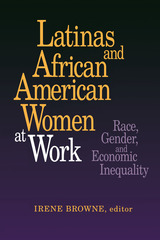
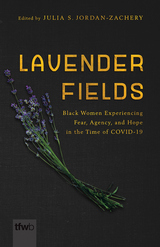
Black women and girls in the United States are among the hardest hit by the pandemic in terms of illnesses, deaths, evictions, and increasing economic inequality. Riffing off Alice Walker’s telling of her search for Zora Neal Hurston, the authors of these essays and reflections offer raw tellings of Black girls’ and women’s experiences written in real time, as some of the contributors battled COVID-19 themselves.
The essays center Black girls and women and their testimonies in hopes of moving them from the margin to the center. With a diversity of voices and ages, this volume taps into the Black feminine interior, that place where Audre Lorde tells us that feelings lie, to access knowledge—generational, past, and contemporary—to explore how Black women navigate COVID-19. Using womanism and spirituality, among other modalities, the authors explore deep feelings, advancing Black feminist theorizing on Black feminist praxis and methodology.
In centering the stories of Black girls and women’s experiences with COVID-19, this work brings much-needed justice and equity to conversations about the pandemic. Just as Walker worked diligently to find Hurston, Lavender Fields attempts to “find” Black women amid all we are experiencing, ensuring visibility and attention.
Contributors
Tamaya Bailey
reelaviolette botts-ward
Kyrah K. Brown
Brianna Y. Clark
Kenyatta Dawson
LeConté J. Dill
Maryam O. Funmilayo
Brandie Green
Courtney Jackson
Sara Jean-Francois
Julia S. Jordan-Zachery
Angela K. Lewis-Maddox
Annet Matebwe
Mbali Mazibuko
Radscheda Nobles
Nimot Ogunfemi
J. Mercy Okaalet
Chizoba Uzoamaka Okoroma
Peace Ossom-Williamson
Elizabeth Peart
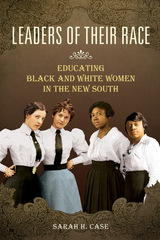
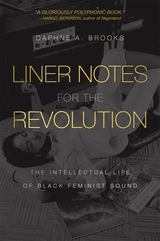
Winner of the Ralph J. Gleason Music Book Award, Rock & Roll Hall of Fame
Winner of the American Book Award, Before Columbus Foundation
Winner of the PEN Oakland–Josephine Miles Award
Winner of the MAAH Stone Book Award
A Pitchfork Best Music Book of the Year
A Rolling Stone Best Music Book of the Year
“Brooks traces all kinds of lines, finding unexpected points of connection…inviting voices to talk to one another, seeing what different perspectives can offer, opening up new ways of looking and listening by tracing lineages and calling for more space.”
—New York Times
An award-winning Black feminist music critic takes us on an epic journey through radical sound from Bessie Smith to Beyoncé.
Daphne A. Brooks explores more than a century of music archives to examine the critics, collectors, and listeners who have determined perceptions of Black women on stage and in the recording studio. How is it possible, she asks, that iconic artists such as Aretha Franklin and Beyoncé exist simultaneously at the center and on the fringe of the culture industry?
Liner Notes for the Revolution offers a startling new perspective on these acclaimed figures—a perspective informed by the overlooked contributions of other Black women concerned with the work of their musical peers. Zora Neale Hurston appears as a sound archivist and a performer, Lorraine Hansberry as a queer Black feminist critic of modern culture, and Pauline Hopkins as America’s first Black female cultural commentator. Brooks tackles the complicated racial politics of blues music recording, song collecting, and rock and roll criticism. She makes lyrical forays into the blues pioneers Bessie Smith and Mamie Smith, as well as fans who became critics, like the record-label entrepreneur and writer Rosetta Reitz. In the twenty-first century, pop superstar Janelle Monae’s liner notes are recognized for their innovations, while celebrated singers Cécile McLorin Salvant, Rhiannon Giddens, and Valerie June take their place as cultural historians.
With an innovative perspective on the story of Black women in popular music—and who should rightly tell it—Liner Notes for the Revolution pioneers a long overdue recognition and celebration of Black women musicians as radical intellectuals.
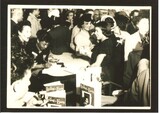
Harlem Renaissance writer Dorothy West led a charmed life in many respects. Born into a distinguished Boston family, she appeared in Gershwin’s Porgy and Bess, then lived in the Soviet Union with a group that included Langston Hughes, to whom she proposed marriage. She later became friends with Jacqueline Kennedy Onassis, who encouraged her to finish her second novel, The Wedding, which became the octogenarian author’s first bestseller.
Literary Sisters reveals a different side of West’s personal and professional lives—her struggles for recognition outside of the traditional literary establishment, and her collaborations with talented African American women writers, artists, and performers who faced these same problems. West and her “literary sisters”—women like Zora Neale Hurston and West’s cousin, poet Helene Johnson—created an emotional support network that also aided in promoting, publishing, and performing their respective works. Integrating rare photos, letters, and archival materials from West’s life, Literary Sisters is not only a groundbreaking biography of an increasingly important author but also a vivid portrait of a pivotal moment for African American women in the arts.
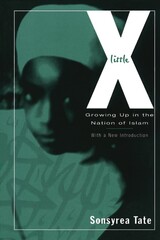
"A temperate and sympathetic treatment of an African-American family's religious evolution." —Publishers Weekly
"A compelling story. It provides an honest, inside view of one of America's most controversial religious movements and perceptively points to social tensions of race, gender and religious identity." —Kirkus Reviews
"Extremely valuable. Recent literature is interested almost exclusively in male leaders. Tate's book provides a new perspective. I have used the book in a number of teaching contexts to very good results." —Judith Weisenfeld, Vassar College
In Little X, Sonsyrea Tate reveals, through the acute vision and engaging voice of a curious child, the practices and policies of the mysterious organization most know only through media portrayals of its controversial leaders Elijah Muhammad, Malcolm X, and Louis Farrakhan. First published in 1997, Little X chronicles the multigenerational experience of Tate's family, who broke from the traditional black church in the 1950s to join the radical Nation of Islam, then struggled to remain intact through disillusionment, shifting loyalties, and forays into Orthodox Islam.
Little X is also an absorbing story of a little girl whose strict Muslim education filled her with pride, confidence, and a longing for freedom, of a teenager in an ankle-length dress and headwrap struggling to fit in with non-Muslim peers, and of a young woman whose growing disillusionment with the Nation finally led to her break with the Muslim religion. Little X offers a rare glimpse into the everyday experience of the Nation of Islam, and into a little-understood part of America's history and heritage.
Sonsyrea Tate-Montgomery has been a staff writer for the Virginian Pilot, Chicago Tribune, and the Washington Post. The recipient of four coveted Echoes of Excellence awards from the National Association of Black Journalists, Tate has also worked as assistant to Congresswoman Eleanor Holmes Norton. She currently works as a political reporter for The Gazette, a Post-Newsweek publication.
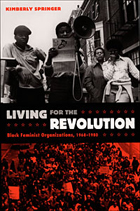
The organizations that Springer examines were the first to explicitly use feminist theory to further the work of previous black women’s organizations. As she describes, they emerged in response to marginalization in the civil rights and women’s movements, stereotyping in popular culture, and misrepresentation in public policy. Springer compares the organizations’ ideologies, goals, activities, memberships, leadership styles, finances, and communication strategies. Reflecting on the conflicts, lack of resources, and burnout that led to the demise of these groups, she considers the future of black feminist organizing, particularly at the national level. Living for the Revolution is an essential reference: it provides the history of a movement that influenced black feminist theory and civil rights activism for decades to come.
READERS
Browse our collection.
PUBLISHERS
See BiblioVault's publisher services.
STUDENT SERVICES
Files for college accessibility offices.
UChicago Accessibility Resources
home | accessibility | search | about | contact us
BiblioVault ® 2001 - 2024
The University of Chicago Press









